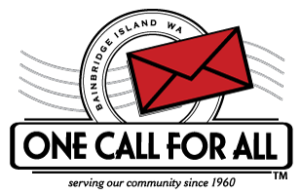Talking to Your Child about Natural Disasters
There are different ways to appropriately discuss scary situations with children, depending on their age. We want to inform them to the best of their abilities without scaring them or making them feel impotent.
Talking to your 2- 5 year olds about natural disasters.
At this age, children do not have a clear understanding of time and dates, of the present and the future. Everything is the present, everything is now. There is no point in giving them information on what to do in an emergency. They will not hold onto the information and it will only scare them. At this age, it is essential they are surrounded by adults who have their best interests at heart and who will be able to guide them in an emergency. The best you can do to prepare your young child is to be prepared yourself: 1) find out what your school is doing to prepare and comply with all their requests, 2) have a plan for where to reunite after a disaster and keep supplies at home to get you through a tough time.
Talking to your 6-9 year olds about natural disasters.
At this age, children are beginning to grasp the realities of the world and are looking for tools to help them guide themselves. You may or may not want to ask them to help you plan. Including them in your family emergency planning can be productive and comforting. However, it could also create fear, so make the choice that is right for your family. If your school has a plan, share that with your child. Judge your child and make sure to avoid stories that are overly graphic. Talk to them about what could happen in a disaster and tell them what you are doing to be prepared. Give them the information they need but try to avoid giving them images that will be haunting or scare them excessively. Honesty is important and you can be honest and still hold back some details. The best rule of thumb is to answer their questions to the point that they are satisfied without giving them too much information.
Talking to your 10 - 12 year olds about natural disasters.
At this age, children are often fully aware of the way of the world. Planning for an emergency can be scary and it is important that they know the adults who care for them are taking this seriously. Include them in your family emergency planning. Talk to them about what could happen in a disaster and tell them what you are doing to be prepared. If your school has a plan, share that with your child. Be available to answer all their questions and, like your discussion with your 6-9 year old, avoid giving images that are scarier or more explicit than they need to be.
Talking to your 13 - 18 year olds about natural disasters.
Teenagers need to feel a sense of control. Include them in your family emergency planning. Talk to them about what could happen in a disaster and tell them what you are doing to be prepared. If your school has a plan, share that with your child. Your plan may include duties for your teen, such as picking up a sibling from school or contacting relatives to say you are ok. They can help research what supplies you need to have on hand and they can help gather them. They may be comforted by taking a disaster preparation or first aid class. Be available to answer all their questions and if you don’t know the answer, you can research it together.
Some communities have organizations to help prepare for natural disasters. For Bainbridge Island, an organization called Bainbridge Prepares works with individuals, organizations, and local government to proactively prepare through a lens of love, rather than fear. Check your community for a similar organization. Being prepared on a personal and a community level is comforting for you and your family.




